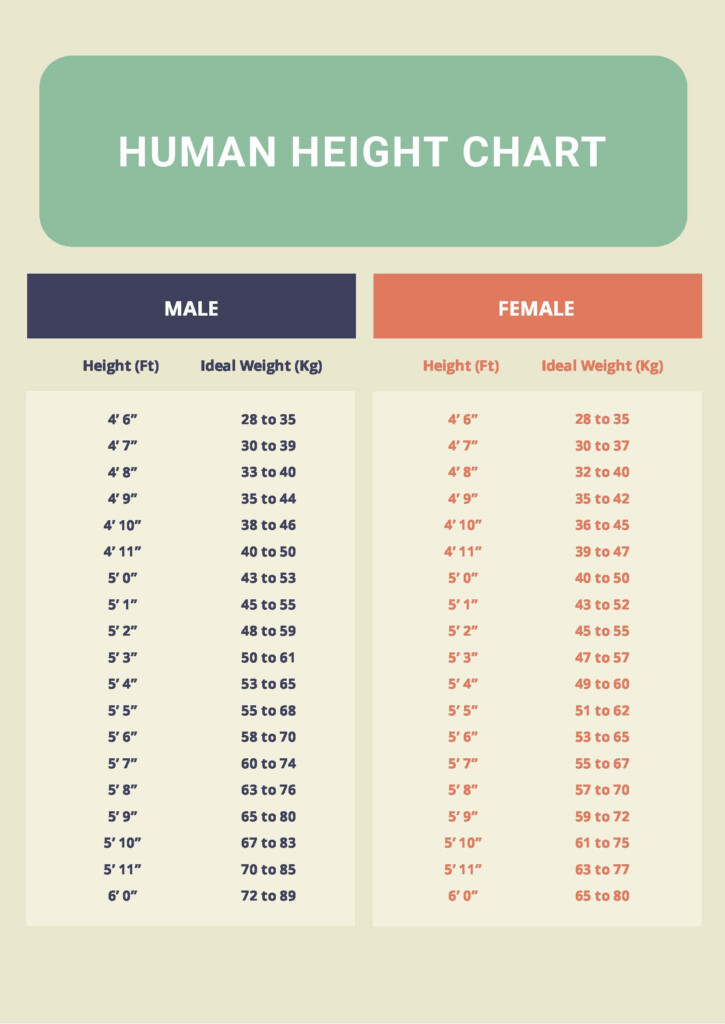When it comes to understanding the average human weight, it is essential to look at the body mass index (BMI) as a reference point. The BMI is a measure of body fat based on height and weight that applies to adult men and women. Generally, a BMI of 18.5 to 24.9 is considered healthy weight, 25 to 29.9 is overweight, and 30 or more is obese. However, it is essential to note that BMI is not a perfect measure as it does not account for muscle mass, bone density, overall body composition, or other factors.
For example, an adult who weighs 150 pounds and is 5 feet 5 inches tall would have a BMI of 25, which falls into the overweight category. It is crucial to consult with a healthcare provider to determine the most appropriate weight for an individual based on their unique circumstances and health goals.
Average Human Weight Chart
Child Weight Chart
Children’s weight can vary significantly based on factors such as age, gender, genetics, and lifestyle. The Centers for Disease Control and Prevention (CDC) provides growth charts that track weight and height measurements for children up to age 20. These charts are valuable tools for parents and healthcare providers to monitor a child’s growth and development over time.
It is essential to remember that children grow at different rates, and there is no one-size-fits-all approach to determining a healthy weight for a child. Factors such as puberty, activity level, and overall health should be considered when assessing a child’s weight. Consulting with a pediatrician or healthcare provider can help ensure that a child is on track for healthy growth and development.
Elderly Weight Chart
As individuals age, their body composition and weight distribution may change. Muscle mass tends to decrease while body fat increases, which can impact overall weight. It is crucial for older adults to maintain a healthy weight to support overall health and mobility.
Factors such as physical activity, diet, and underlying health conditions can influence an elderly person’s weight. It is essential for seniors to work with healthcare providers to ensure they are maintaining a healthy weight and making lifestyle choices that support their well-being. Regular exercise, balanced nutrition, and regular medical check-ups can help older adults maintain a healthy weight and overall quality of life.
